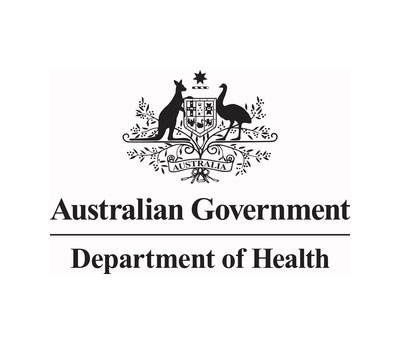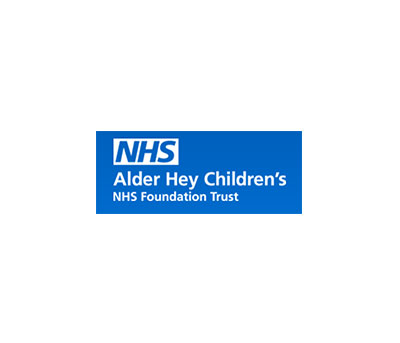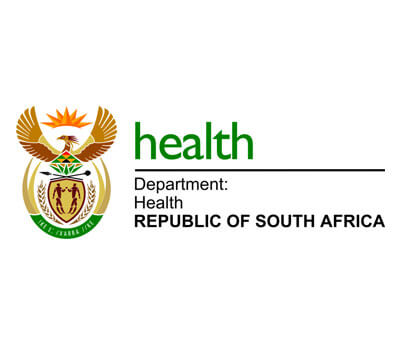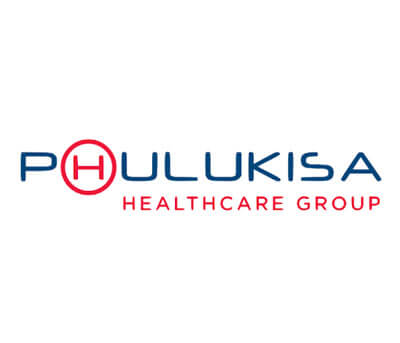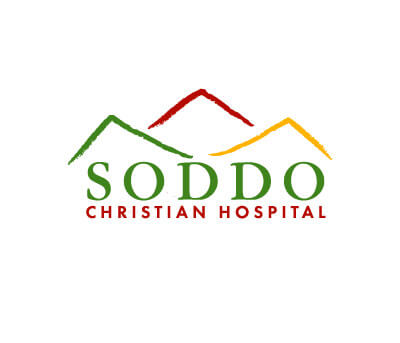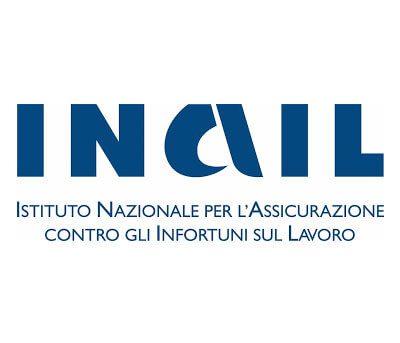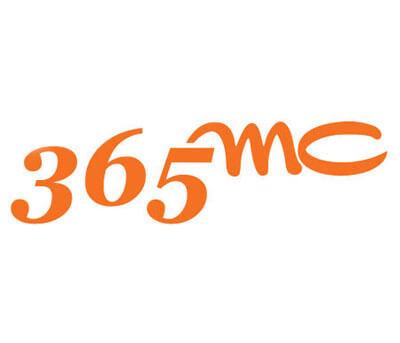DOWNLOAD OUR WHITEPAPER: DATA SOVEREIGNTY & THE CLOUD –
A HEALTHCARE PERSPECTIVE
DOWNLOAD OUR LATEST WHITEPAPER
REGULATORY OVERVIEW
The Moroccan government has committed itself to achieving digital transformation and to helping grow a healthcare sector which provides quality healthcare for all. It recognizes that technology can be leveraged to provide solutions to some of the country's greatest challenges, including health.
As changes disrupt the very fundamentals of healthcare in the coming years, we at Microsoft want to ensure that stakeholders in the healthcare sector can navigate technological advancements, so they not only cope but thrive.
Being a highly regulated sector, it is crucial to ensure that any move to the cloud complies with applicable regulation and achieves the obvious benefits without undue risk
MICROSOFT'S COMMITMENT TO THE MOROCCAN HEALTHCARE SECTOR
Our mission at Microsoft is to empower every person and every organization on the planet to achieve more. We are focused on the heroes of the healthcare sector. We want to empower practitioners, clinicians, and researchers to improve detection and diagnosis, treatment and management, as well as prediction and prevention of disease—in and out of clinical settings, for both individuals and the public good. This means improved access and more control over patient healthcare data and enhanced connections to care providers when and where needed.
Microsoft has valuable experience from engagements with healthcare institutions, providers, and regulators globally and regionally. Using Microsoft cloud-enabled health applications can reduce the waiting time for patients at clinics, makes patient diagnostic results accessible immediately, allow automated decision-making with alerts to both patient and care-giver and make the identification of regional trends using aggregate data a reality.
Microsoft is therefore committed to working with national healthcare regulators, healthcare providers, and other stakeholders to ensure our technologies can be used to enable the healthcare sector in ways that meet national compliance and regulatory requirements. Indeed, Microsoft is of the view that its cloud solutions can be used to meet and even enhance the level of compliance with regulatory requirements.
Microsoft has already initiated plans to deliver the Microsoft Cloud - including Microsoft Azure, Office 365, and Dynamics 365 - from data centres located in the Middle East & Africa (MEA) region, which will offer enterprise-grade reliability and performance to our customers across the MEA region. Microsoft experts are also available to understand your requirements and provide detailed information on the technical, contractual, and practical aspects of any proposed cloud project. Delivering a cloud that is trusted, responsible, and inclusive is a key part of our commitment to this digital transformation and to a cloud that serves the global good.
Microsoft also understands that health information which is defined as “sensitive data”1 constitutes some of the most sensitive data that our customers handle and is subject to stringent regulatory requirements related to storage and processing. We have industry leading security and privacy practices that allow customers around the world to use the Microsoft Cloud for storing sensitive data.
Microsoft’s cloud services are subject to rigorous audits by internationally accredited third parties and are certified against a number of key global standards and regulatory requirements for the healthcare sector. Those standards include ISO/IEC 270012 and 27002 as well as the cloud specific extension ISO/IEC 270173 and ISO/IEC 270184 (a series of the most well-known globally accepted information security management standards) and the Service Organization Controls standards SOC1, SOC2 and SOC35 as well as the Cloud Security Alliance’s Security, Trust & Assurance Registry (CSA STAR)6. Microsoft cloud services are also covered by a Business Associate Agreement that outlines how Microsoft handles and protects PHI consistent with the US Health Insurance Portability and Accountability Act (HIPAA).7 Together, the advanced controls embodied within these global standards allow Microsoft to meet or exceed any local information security requirements that apply to health data. In addition, Microsoft’s cloud adheres to the internationally accepted definitions of cloud services captured in ISO/IEC 177888, ISO/IEC 177899 and ITU-T Y.350210 to ensure a common understanding of terms and definitions in policies and regulation.
THE REGULATORY ENVIRONMENT
The healthcare industry in Morocco comprises many different stakeholders and role-players. Law No. 34-09 dealing with the healthcare system and the provision of healthcare is the framework legislation providing for a structured uniform health system within the country.
Each role-player in the system is, in turn, regulated by specific Acts and Regulations, including:
- health practitioners are regulated by regulations including Law No.131-13 governing the exercise of medicine and the Health Practitioners’ Ethical Rules;
- healthcare establishments such as hospitals, clinics, and similar facilities, are regulated by the Ministry of Health and Hospital Regulations;11
- medical coverage is regulated by Law No. 65-00 creating the code of basic healthcare coverage12; and
- pharmacists are regulated by the Law No. 17-04 creating the code of medicine and pharmacy13.
Other practitioners and healthcare industry role-players are regulated by other laws.14 Those role-players who are organs of state would also be required to comply with public procurement laws in procuring cloud services.
-
- Key regulators in this industry are the Ministry of Health, the General Secretariat of the Government and to a lesser degree the National Council of Doctors and the relevant Regional Council of Doctors.15
- There are also many other regulators regulating other practitioners and healthcare industry role-players.16
-
The use of cloud services is not expressly addressed in any specific healthcare legislation. There may however be laws applicable to the healthcare industry which may need to be taken into account, including the obligation on relevant role-players to keep confidential and not to disclose certain information (see below).
-
There is presently no uniform regulation of cloud services in Morocco. Role-players within the healthcare sector would, however, need to be mindful of the following regulatory provisions in moving to the cloud:
- Certain general and specific requirements relating to the security and protection of the confidentiality of patients which preclude disclosure of personal and medical information save in specific circumstances, such as with the patient's prior consent.17
- The data controller in charge of the processing of the health personal information must set up control and security measures to prevent unauthorised access to the records and to the storage facility in which, or system by which, records are kept.18
- The information systems of the Ministry of Health shall comply with guidelines from the IT System Department.19
- Pharmacies: A prescription book record must be kept in respect with certain medicines in hard copy on all premises where such medicines are sold or dispensed. The prescription book must be kept for a period of at least ten years after the date of the last entry.20
Information regarding health or sex life is treated as special personal information, and its processing21 will be subject to specific requirements, which in most cases requires the data controller to obtain prior authorization of the National Control Commission for the Protection of Personal Data (CNDP).22 However, this will not preclude processing with the consent of the data subject, or processing (with only a prior declaration to the CNDP) in cases which relate to:
- preventative medicine, medical diagnosis, the provision of care or treatment or the management of healthcare services when the data is processed by a health professional subject to the obligation of professional secrecy, or by another person also subject to an equivalent obligation of secrecy;23 and
- processing aiming solely at the selection of people who may benefit from an individual right, service, or contract and who are not excluded from such benefit as a result of a law or regulation.24
Furthermore, any healthcare industry role-player, which amounts to a public institution or an infrastructure of vital importance,25 should ensure compliance with the National Directive for the Security of Information Systems26 and Decree No. 2-15-712 dated 22 March 2016 laying down the plan for the protection of sensitive information systems of institutions of vital importance and ensure that its sensitive data27 is hosted in Morocco. The National Directive for the Security of Information Systems does not define what sensitive data refers to within the context of each entity. Accordingly, a data classification framework that is adopted by the entity and endorsed by the regulator is always recommended in order to define what “sensitive data” means to such entity and stay compliant with the National Directive for the Security of Information Systems.
Furthermore, regardless of its status of infrastructure of vital importance and subject to specific exemptions28, any healthcare industry role-player having recourse to encryption means or services is required to file a prior declaration or authorization29, as the case may be, before the General Direction for the Security of Information Systems30.
-
No, there are no laws requiring approval from healthcare regulatory authorities for the use of cloud services. Specific care should however be taken in light of the above considerations given that there are stringent obligations on the sector's role-players to maintain the privacy of patients and the confidentiality of patient information, as well as the safekeeping of records.
To the extent that health information is to be transferred outside of Morocco without compliance with the data transfer requirements set out below, the data controller will require prior authorisation from the CNDP (see below).31
-
Healthcare regulatory authorities possess fairly broad inspection powers which include the power to enter the relevant premises and to access relevant information. For example, a health officer may require the person in charge of a health establishment to produce for inspection, or for purposes of making copies or extracts, any document including any health record that the establishment is required to maintain.32
-
Under the Law No. 09-08 relating to the protection of individuals with respect to the processing of personal data (the "Law 09-08"), personal information may be transferred outside of Morocco provided the requirements of Law 09-08 are met. Law 09-0833 permits the transfer of personal information to a foreign country in specific circumstances, including if the recipient is subject to a law, binding corporate rules or a binding agreement which provides an adequate level of protection as contemplated in Law 09-08, or with the prior authorization of the CNDP.
Microsoft holds itself accountable to and is subject to laws of general application applicable to information technology service providers, and has binding agreements which, in its view, provide adequate protection. In addition, Microsoft adheres to the EU Model Clauses as well as the EU Privacy Shield and the ISO 27018 Privacy Standard. Microsoft is also committed to ensuring that its products and services comply with the EU General Data Protection Regulation (GDPR) which came into force in May 2018.
-
1 Article 1.3. of Law 09-08 regarding the protection of individuals with respect to the processing of individual’s personal data.
2 ISO/IEC 27001:2013 Information Security Management Standards
3 ISO/IEC 27017:2015 Code of Practice for Information Security Controls
4 ISO/IEC 27018 Code of Practice for Protecting Personal Data in the Cloud
5 Microsoft compliance offerings
6 Cloud Security Alliance (CSA) STAR Certification
7 See here for more information on HIPAA: HIPAA and the HITECH Act
8 Licence Agreement for Publicly Available Standards 17788
9 Licence Agreement for Publicly Available Standards 17789
11 See here for more information on Hospital Regulations: ETABLISSEMENTS SOUS TUTELLE DU MINISTERE DE LA SANTE
12 Dahir No. 1-02-296, published by the Official Journal dated 21 November 2002 instituting Law 65-00 creating the code of basic healthcare coverage.
13 Dahir No. 1-06-151 published by the Official Journal No. 5480 dated 7 December 2006 and instituting Law 17-04 creating the code of medicine and pharmacy.
14 Including nurses who are regulated by Dahir 1-57-08 and midwives who are regulated by Dahir n° 1-59-367.
15 Law 08-12 relating to the National Doctor’s Order
16 Such as the Order of the midwife, or the National laboratory of control of the pharmaceuticals.
17 Law 09-08
18 Article 24 of Law 09-08
19 Circular No. 32 of the Ministry of Health dated March, 17 2015 with respect to the IT systems
20 Art. 33 of the Code of the pharmacy
21 Article 1 of Law 09-08 defines "processing" as “any operation or set of operations which is performed upon personal data, whether or not by automatic means such as collection, recording, organization, storage, adaptation or alteration, retrieval, consultation, use, disclosure by transmission, dissemination or otherwise making available, alignment or combination, blocking, erasure or destruction”
22 Article 3 of Law 09-08
23 Article 22 of Law 09-08.
24 Article 22 of Law 09-08.
25 Defined in Decree No. 2-15-712 dated 22 March 2016 to mean all facilities, works and systems that are essential to the maintaining of the vital functions of the society, public health, safety, security and economic or social well-being, the damage of which or the unavailability or the destruction would have an impact leading to the failure of these functions
-26 Section 1.19 of the NAFDAC Guidelines for Good Practices in Pharmaceutical Quality Control Laboratories 2016
27 Defined in the National Directive for the Security of Information Systems and in Decree No. 2-15-712 dated 22 March 2016 to mean information the compromising, alteration, misappropriation or destruction of which is likely to harm the continuity of functioning or to endanger the informational patrimony of the infrastructure of vital importance.
28 Article 2 of Decree 2-08-518 dated 21 May 2009 for the application of Law 53-05, as subsequently amended and completed. See Appendix II of the Decree for the list of exemptions.
29 Art 13 of Law 53-05 dated 6 December 2007 relating to the electronic exchange of legal data.
30 Decree 2-08-518 dated 21 May 2009 for the application of Law 53-05, as subsequently amended and completed.
31 Article 44 of Law 09-08.
32 Section 5 of Law 131-13
33 Article 43 of Law 09-08
WE BUILD OUR TRUSTED CLOUD ON FOUR FOUNDATIONAL PRINCIPLES

Security
We build our services from the ground up to help safeguard your data

Privacy
Our policies and processes help keep your data private and in your control

Compliance
We provide industry-verified conformity with global standards

Transparency
We make our policies and practices clear and accessible to everyone












